|
|
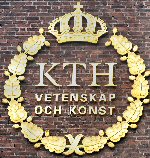 On April 23-25, ERAIHM project Coordinator Prof. Eugene Nikiforovich and
project secretary Dr. Valery Oliynik appointed to delegation of the IHM
NASU have made a visit to the Royal Technology Institute - KTH (Stockholm, Sweden).
Besides the thematic lectures and organisational meetings, the acquainting
with the experimental facilities of the KTH and studying of functioning of the
modern eco-friendly districts of Stockholm were scheduled.
On April 23-25, ERAIHM project Coordinator Prof. Eugene Nikiforovich and
project secretary Dr. Valery Oliynik appointed to delegation of the IHM
NASU have made a visit to the Royal Technology Institute - KTH (Stockholm, Sweden).
Besides the thematic lectures and organisational meetings, the acquainting
with the experimental facilities of the KTH and studying of functioning of the
modern eco-friendly districts of Stockholm were scheduled.
|
The Monday April 23 was completely covered by lectures.
At the very beginning, the KTH Vice-Rector Ramon Wyss made a brief
introduction to history of the Institute creation and development. It is
remarkable that at the very beginning, the KTH, like the TU Delft was
intended first of all for preparing the engineers for military demands.
Though, radical changes in Swedish national priorities in XX century have
lead to turning the KTH to one of the leading civil engineering high
schools of Europe.
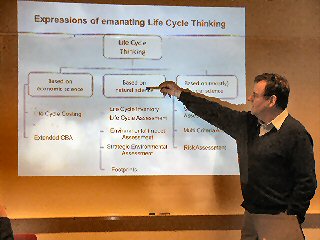
Prof. Ronald Wennersten has delivered a lecture cycle on:
- Scenario Methods for Energy Planning;
- Heat Pump Technologies;
- Risk Management and Environmental Conflict Resolution.
After that, Dr. Björn Frostell has presented the course
"From Life Cycle Assessment to Life Cycle Thinking" dedicated to
developing of strategy for sustainable development of industrial ecosystems.
|
On Tuesday April 24, the organsiatinal
workshops were conducted for correcting of the current partner plans.
The most useful for Ukrainian participants was acquainting with the
experience of developing of a structured web-platform for
CREDO project. Some of considered solutions
may be successfully implemented for modernisation of the IHM web-site and
ERAIHM web-platform.
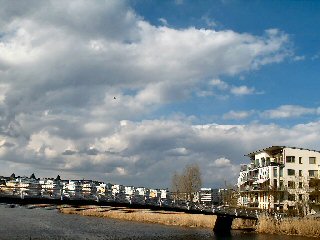 In the afternoon, we have visited the modern residential community of Stockholm
known as Hammarby Sjöstad.
Since 1990s, a full-scale experiment is conducted here for deep
reclamation of the territory, used to be in past the typical highly
polluted industrial zone. The newly-built residential district and all its
infrastructure from the very beginning were obeyed to the severe requirements
of ecological compatibility for, at least, the 50% lowering of their
environmental footprint. In particular, the Stockholm Water Company, Fortum
and the Stockholm Waste Management Administration have jointly developed
the unique model for eco-friendly organic waste utilisation now known as
"Hammarby model". Its key feature is the integrated implementing of various
energy supply and purification systems at maximal utilisation and
processing of recoverable resources
(see details at web-site www.hammarbysjostad.se).
In the afternoon, we have visited the modern residential community of Stockholm
known as Hammarby Sjöstad.
Since 1990s, a full-scale experiment is conducted here for deep
reclamation of the territory, used to be in past the typical highly
polluted industrial zone. The newly-built residential district and all its
infrastructure from the very beginning were obeyed to the severe requirements
of ecological compatibility for, at least, the 50% lowering of their
environmental footprint. In particular, the Stockholm Water Company, Fortum
and the Stockholm Waste Management Administration have jointly developed
the unique model for eco-friendly organic waste utilisation now known as
"Hammarby model". Its key feature is the integrated implementing of various
energy supply and purification systems at maximal utilisation and
processing of recoverable resources
(see details at web-site www.hammarbysjostad.se).
Hammarby might be called the Swedish model of the future city not only
because of rational construction of energy efficient buildings and
waste recycling management. The life in such district is pleasant and
comfortable: the green belts, clean water of Hammarby Sjö, plenty of
wild swimming birds, minimization of traffic inside the residential community
are combined with perfect layouts and large number of pedestrian areas.
It should be noted that Hammarby experiment is lasting: the continuous
monitoring of its functioning is fulfilled and the researchers are seeking
for even more efficient solutions for the perspective urban planning.
|
On Wednesday April 25, the Ukrainian delegation
had an introductory presentation at Heat Engineering Laboratory of the
KTH. Strictly speaking, it is a large laboratory complex occupying the
 entire building in the Institute's campus. In particular, the following
researches are conducted here:
entire building in the Institute's campus. In particular, the following
researches are conducted here:
- Heat Pumps and Refrigerators;
- Heat Exchange Optimisation and Coolers;
- Modeling of Thermal Processes in Complex Real Systems
(private houses, public buildings, supermarkets and so on).
The wide spectrum of applied deliveries was demonstrated in the labs:
from heat-exchanger prototypes using the nanomaterials to the first
household refrigerator (by the way, invented in Sweden as far as at the
end of XIX century!).
|
In course of our visit, on behalf of IHM the documents prepared for joint call for a grant
of Swedish Institute in medical acoustics were given to Karolinska University (Stockholm).
We are voicing the hope for future development of these contacts that should result in
joint competitive projects under the aegis of the EU research programmes.
|
|



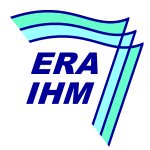
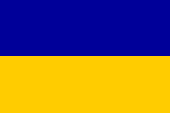 ERAIHM
ERAIHM

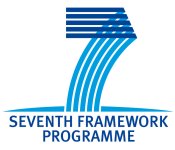





 ERAIHM
ERAIHM


